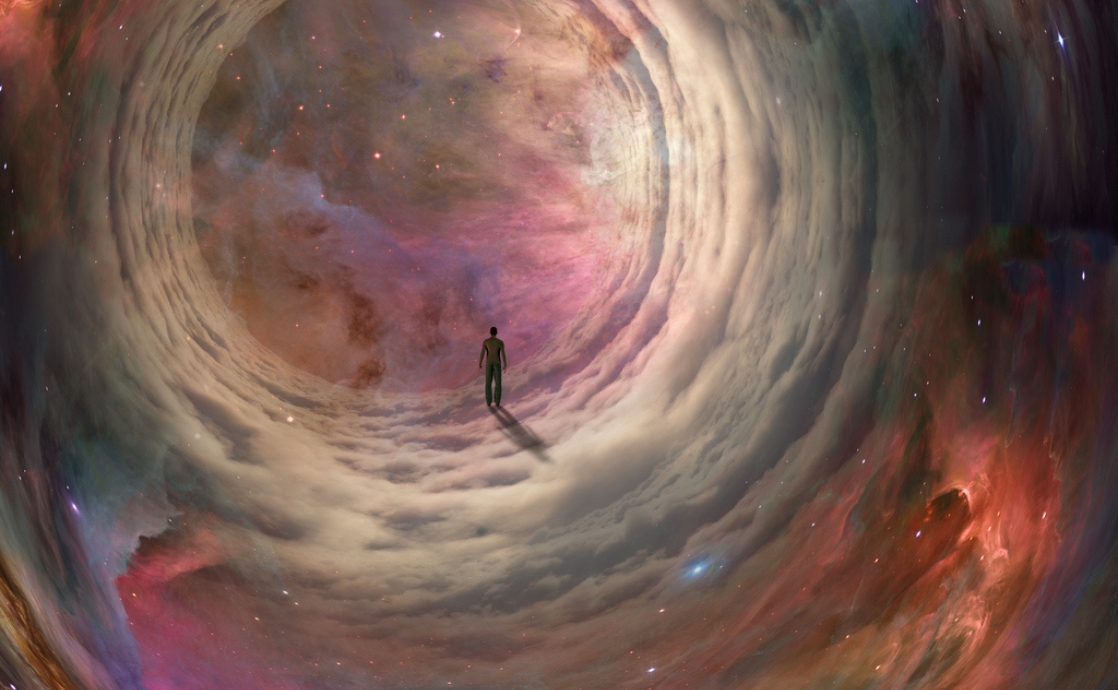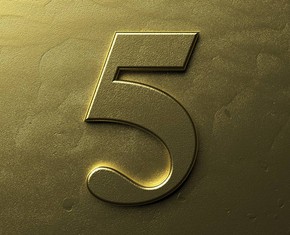The views expressed in our content reflect individual perspectives and do not represent the authoritative views of the Baha'i Faith.
Consider, for a few moments, this mystical and yet practical gem of venerable advice: “If you die before you die, then you won’t die when you die.”
That’s the timeworn inscription over the entrance to an ancient 10th century monastery on Mount Athos in Greece. Its main message is better elucidated and explained by this quotation from the writings of Baha’u’llah, the prophet and founder of the Baha’i Faith:
… drown thyself in the depths of eternity, that death may not overtake thee, and that thou mayest abide forever in the shadow of the everlasting Face of God. Thereupon shall the fragrance of the All-Glorious be diffused from the realm of the All-Merciful, and thy heart shall grieve no more over the vicissitudes of a fleeting life and the turns of a transient fortune.
Let’s unpack and consider these two profound and paradoxical passages.
“if you die before you die” — how does that work? How can we drown ourselves “in the depths of eternity?”
RELATED: How to Get Ready for Death
It seems that the deep wisdom in both of these pieces of spiritual advice urges us to consider the inevitable end of all material things — including our own bodies — in a serious way. We will all die, they affirm, so in order to transcend our bodily death we have the option of actively contemplating and coming to grips with that physical end long before it happens. Once we do, we can decide to die to this world and therefore begin living in and for the eternity of the next.
We know we’re only here in this place as temps — so shouldn’t we be planning for our more permanent existence, for the next world beyond this one? Shouldn’t we be preparing for our move, which we all know will happen one day? Yes, the Baha’i teachings emphatically confirm:
God, the Exalted, hath said, “Him will We surely quicken to a happy life.” Supreme importance should be attached, therefore, not to this first creation but rather to the future life.
We each have the ability to recognize that reality. When we do — when we understand that our souls live beyond the confines of the body, and will continue to live when the body has turned to dust — we can consciously decide to focus on and prioritize our immortal life over this troublesome and fleeting mortal one. Abdu’l-Baha outlined that decision in this passage from his writings:
Such is this mortal abode: a storehouse of afflictions and suffering. It is ignorance that binds man to it, for no comfort can be secured by any soul in this world, from monarch down to the most humble commoner. If once this life should offer a man a sweet cup, a hundred bitter ones will follow; such is the condition of this world. The wise man, therefore, doth not attach himself to this mortal life and doth not depend upon it …
From another perspective, both of the passages about preventing death from overtaking a soul imply another kind of dying — a dying to self, a transcendence of the individual ego. In his writings, Abdu’l-Baha described that selfless spiritual state this way:
Release yourselves from this world’s life, and at every stage long ye for nonexistence; for when the ray returneth to the sun, it is wiped out, and when the drop cometh to the sea, it vanisheth, and when the true lover findeth his Beloved, he yieldeth up his soul.
Until a being setteth his foot in the plane of sacrifice, he is bereft of every favor and grace; and this plane of sacrifice is the realm of dying to the self, that the radiance of the living God may then shine forth. The martyr’s field is the place of detachment from self, that the anthems of eternity may be upraised. Do all ye can to become wholly weary of self, and bind yourselves to that Countenance of Splendors; and once ye have reached such heights of servitude, ye will find, gathered within your shadow, all created things. This is boundless grace; this is the highest sovereignty; this is the life that dieth not.
RELATED: Facing the Day of Resurrection — and Judgment
This mystical task — transcending your innately selfish lower nature and actively developing your soul’s higher spiritual one — constitutes the central message of all Faith and every conscious spiritual path. If we can manage to reduce our fear of death, it allows us to envision an unlimited horizon and engage with life fully and joyously. To do that, we must, the Baha’i teachings recommend, “be born out of the matrix of naturalism, out of the baser nature:”
… just as in the first birth the fetus comes forth from the matrix of the mother into the conditions of the human kingdom, even so the spirit of man must be born out of the matrix of naturalism, out of the baser nature, in order that he may comprehend the great things of the Kingdom of God. He must be born out of mother earth to find the everlasting life. And this collective reality, or spirit, of man, being born out of the world of nature, possessing the attributes of God, will continue to live forever in the eternal realm.That rebirth requires the recognition of this great truth: “… the spirit of man is not composed of material elements, it is not subject to decomposition and, therefore, has no death.”
You May Also Like
Comments

















To “drown in the depths of eternity” is to immerse ourselves in the reality of the divine, to live as if eternity is not merely a distant promise but a present truth. This practice requires courage, for it asks us to confront the impermanence of our mortal lives, but it also offers ...liberation—the knowledge that what is essential in us, our soul, will never fade.